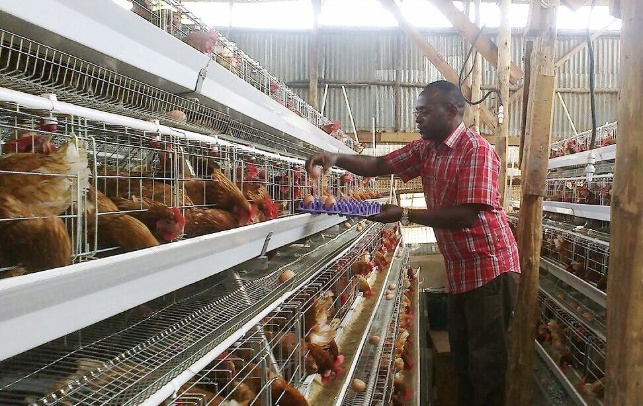Exploring Poultry Cage Options for Local Farms
Time : 2024-05-17
In the realm of local poultry farming, selecting the right cage setup is crucial for ensuring the welfare of the birds and the success of the operation. In this comprehensive guide, we delve into the various considerations surrounding poultry cages and explore the options available for local farmers.
Understanding the Importance of Poultry Cage
Poultry cages serve as the primary housing system for chickens in commercial egg production and meat processing facilities. When it comes to local farms, the choice of poultry cages can significantly impact the health, productivity, and overall well-being of the birds.

Types of Poultry Cages
- Battery Cages: Battery cages, characterized by their tiered design and space-efficient layout, are commonly used in intensive egg production operations. While they offer advantages in terms of space optimization and egg collection efficiency, concerns have been raised regarding hen welfare.
- Free-Range Systems: Free-range systems allow chickens to roam freely outdoors, promoting natural behaviors and improving welfare. However, these systems require ample space and entail higher management costs compared to cage-based systems.
- Colony Cages: Colony cages are larger enclosures that house groups of chickens together, providing more space and opportunities for social interaction. This system strikes a balance between the space efficiency of battery cages and the welfare considerations of free-range systems.
Factors to Consider When Choosing Poultry Cages for Sale
1. Size and Space Requirements: Assessing the space available on the farm is essential for determining the appropriate size and quantity of poultry cages needed. Adequate space allowance is critical for ensuring the comfort and well-being of the birds.
2. Cage Design and Construction: Selecting cages made from durable materials and featuring well-designed ventilation and waste management systems is crucial for maintaining a healthy environment within the poultry house.
3. Supplier Reliability: Choosing a reputable supplier for poultry cages is essential to ensure product quality, timely delivery, and after-sales support. Researching customer reviews and testimonials can help farmers make informed decisions when purchasing poultry cages for their operation.
Maximizing Efficiency and Welfare in Local Poultry Cage
1. Implementing Best Practices: Following recommended guidelines for flock management, hygiene protocols, and disease prevention measures can help optimize productivity and minimize health risks in poultry farming.
2. Balancing Economic Considerations and Animal Welfare: While cost-effective solutions are important for the financial sustainability of local farms, it’s equally important to prioritize the welfare of the chickens and adhere to ethical standards in poultry production.
3. Engaging with the Community: Building strong relationships with local consumers and stakeholders can help local poultry farmers understand market demands and consumer preferences, allowing them to adapt their practices accordingly.
Conclusion: Building a Sustainable Future for Local Poultry Farming
In conclusion, selecting the right poultry cage system is a critical decision for local farmers looking to establish or expand their poultry operations. By carefully considering factors such as cage type, size, design, and supplier reliability, farmers can create an environment that promotes both the welfare of the birds and the economic viability of their business. With a commitment to sustainability, ethical farming practices, and community engagement, local poultry farming can thrive as a vital component of the agricultural landscape.











